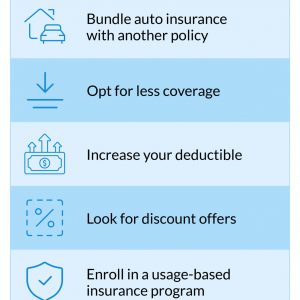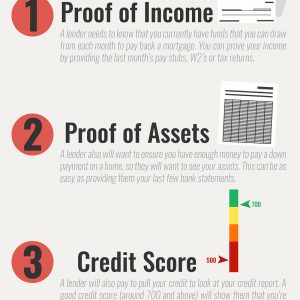“Maximize Your Tax Savings – Deduct Your Way to Success!”
Introduction
Tax deductions for self-employed individuals can be a great way to reduce your tax burden and maximize your income. Self-employed individuals are able to take advantage of a variety of deductions that can help them save money on their taxes. These deductions can include expenses related to business operations, such as office supplies, travel, and advertising. Additionally, self-employed individuals may be able to deduct certain health insurance premiums, retirement contributions, and home office expenses. Understanding the different types of deductions available to self-employed individuals can help them maximize their tax savings.
How to Maximize Tax Deductions for Self-Employed Individuals
Self-employed individuals have the unique opportunity to maximize their tax deductions and reduce their taxable income. By taking advantage of the deductions available to them, they can save money and reduce their tax burden. Here are some tips to help self-employed individuals maximize their tax deductions.
First, it is important to keep accurate and detailed records of all income and expenses. This includes tracking all business-related expenses, such as office supplies, travel, and meals. Keeping accurate records will make it easier to claim deductions and ensure that all expenses are properly documented.
Second, self-employed individuals should take advantage of the home office deduction. This deduction allows individuals to deduct a portion of their rent or mortgage payments, as well as utilities, insurance, and other expenses related to the home office.
Third, self-employed individuals should consider taking advantage of the self-employment tax deduction. This deduction allows individuals to deduct a portion of their self-employment taxes, including Social Security and Medicare taxes.
Fourth, self-employed individuals should consider taking advantage of the health insurance deduction. This deduction allows individuals to deduct the cost of health insurance premiums for themselves and their family members.
Finally, self-employed individuals should consider taking advantage of the retirement savings deduction. This deduction allows individuals to deduct contributions to retirement accounts, such as a 401(k) or IRA.
By taking advantage of these deductions, self-employed individuals can reduce their taxable income and save money on their taxes. It is important to keep accurate records and consult with a tax professional to ensure that all deductions are properly claimed.
Common Tax Deductions for Self-Employed Individuals
Self-employed individuals are eligible for a variety of tax deductions that can help reduce their taxable income. These deductions can include expenses related to their business, such as office supplies, travel, and advertising. Additionally, self-employed individuals may be able to deduct certain expenses related to their health insurance, retirement savings, and home office.
Business Expenses: Self-employed individuals can deduct any ordinary and necessary expenses related to their business. This includes the cost of supplies, equipment, travel, and advertising. Additionally, self-employed individuals may be able to deduct the cost of professional services, such as legal or accounting fees.
Health Insurance: Self-employed individuals may be able to deduct the cost of their health insurance premiums. This deduction is limited to the amount of the individual’s net self-employment income.
Retirement Savings: Self-employed individuals may be able to deduct contributions to a retirement plan, such as a SEP-IRA or a solo 401(k). This deduction is limited to the lesser of 25% of the individual’s net self-employment income or $56,000.
Home Office: Self-employed individuals may be able to deduct the cost of maintaining a home office. This deduction is limited to the amount of the individual’s net self-employment income.
Self-employed individuals should consult with a tax professional to determine which deductions are available to them. By taking advantage of these deductions, self-employed individuals can reduce their taxable income and save money on their taxes.
How to Claim Home Office Deductions for Self-Employed Individuals
Self-employed individuals can claim home office deductions on their taxes to reduce their taxable income. This deduction is available to those who use a portion of their home exclusively and regularly for business purposes. To claim the deduction, the individual must meet certain criteria and follow specific steps.
First, the individual must determine if they qualify for the deduction. To do this, they must use the space exclusively and regularly for business purposes. This means that the space must be used solely for business activities and not for any other purpose. Additionally, the individual must use the space as their principal place of business or as a place to meet with clients or customers.
Once the individual has determined that they qualify for the deduction, they must calculate the amount of the deduction. This is done by determining the percentage of the home that is used for business purposes. This percentage is then multiplied by the total expenses associated with the home, such as mortgage interest, insurance, utilities, and repairs.
The individual must also keep records of their business expenses. This includes receipts, invoices, and other documents that show the amount of money spent on business-related activities. These records should be kept for at least three years.
Finally, the individual must complete and file Form 8829 with their tax return. This form is used to calculate the amount of the deduction. The individual must also attach any supporting documents, such as receipts and invoices, to the form.
By following these steps, self-employed individuals can claim home office deductions on their taxes. This deduction can help reduce their taxable income and save them money.
What Self-Employed Individuals Need to Know About Retirement Plan Deductions
Self-employed individuals have the unique opportunity to save for retirement through a variety of tax-advantaged retirement plans. These plans can provide significant tax savings, as well as the potential for long-term growth. However, it is important to understand the rules and regulations associated with these plans in order to maximize the benefits.
One of the most important aspects of retirement plan deductions for self-employed individuals is the contribution limit. The Internal Revenue Service (IRS) sets an annual limit on the amount that can be contributed to a retirement plan. This limit is based on the individual’s income and other factors. It is important to understand the contribution limit in order to ensure that the maximum amount is being contributed each year.
In addition to the contribution limit, self-employed individuals should also be aware of the tax deductions associated with retirement plans. Contributions to a retirement plan are generally tax-deductible, which can provide significant tax savings. However, the amount of the deduction is limited to the lesser of the contribution limit or the individual’s taxable income. It is important to understand the rules and regulations associated with these deductions in order to maximize the tax savings.
Finally, self-employed individuals should be aware of the withdrawal rules associated with retirement plans. Generally, withdrawals from a retirement plan are subject to income tax and may also be subject to a 10% early withdrawal penalty. It is important to understand the rules and regulations associated with withdrawals in order to ensure that the funds are used in the most tax-advantaged manner.
Self-employed individuals have the unique opportunity to save for retirement through a variety of tax-advantaged retirement plans. However, it is important to understand the rules and regulations associated with these plans in order to maximize the benefits. This includes understanding the contribution limit, the tax deductions associated with the plan, and the withdrawal rules. By understanding these rules and regulations, self-employed individuals can ensure that they are taking full advantage of the retirement plan deductions available to them.
Understanding Self-Employment Tax Deductions and Credits
Self-employment tax deductions and credits are an important part of managing your finances as a self-employed individual. Understanding the various deductions and credits available to you can help you maximize your tax savings and reduce your overall tax burden.
Self-employment tax deductions are expenses that you can deduct from your income to reduce your taxable income. Common deductions include business expenses such as office supplies, travel expenses, and advertising costs. You can also deduct certain health insurance premiums, retirement contributions, and home office expenses.
Self-employment tax credits are credits that you can claim to reduce your tax liability. Common credits include the Earned Income Credit, the Child and Dependent Care Credit, and the Self-Employment Health Insurance Deduction.
It is important to keep track of all of your expenses and income throughout the year to ensure that you are taking advantage of all of the deductions and credits available to you. Additionally, you should consult with a tax professional to ensure that you are taking advantage of all of the deductions and credits available to you.
By understanding the various deductions and credits available to you, you can maximize your tax savings and reduce your overall tax burden. This can help you keep more of your hard-earned money and ensure that you are paying the lowest amount of taxes possible.
Conclusion
In conclusion, tax deductions for self-employed individuals can be a great way to reduce taxable income and save money. It is important to research and understand the different types of deductions available and to keep accurate records of all expenses. With careful planning and record keeping, self-employed individuals can take advantage of the many tax deductions available to them and maximize their savings.





